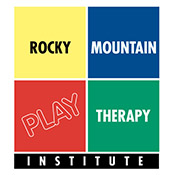 PLAY THERAPY FOR CHILDREN OF SEPARATION AND DIVORCE: Managing the Impact of Parental Conflict
PLAY THERAPY FOR CHILDREN OF SEPARATION AND DIVORCE: Managing the Impact of Parental Conflict
This training program will:
- Help you provide better feedback and clear information to third parties (i.e., parents/lawyers/court)
- Plan activities and check-ins for children of divorce at all ages and levels of development
- Provide you with new tools used in Family Law to assess how to meet your client's needs
Course Description
Blended Delivery (Face to Face or Live Online)
This program is 12 contact hours - in Room or Live-On-line (minimum number of participants required for In Room) and 1.5 hours non-contact (Mastery Test) (Total 13.5 hours). The program is offered in either four 3-hour sessions delivered on different days or over two 6-hour days. It is designed for child and family therapists who work with children and families going through separation and divorce. During the training therapists will focus on the use of expressive arts, projective play-based activities and sand play to both assess and treat children of separation and divorce. This training program will highlight best practices and current theory and research related to children of separation and divorce. The training approach includes theoretical content, experiential activities, practical tools and case examples.
Training Materials:The fees are inclusive of the supply of:
- Training Materials
- Reading Materials
- Practitioner Tools
Intellectual Property: The author retains the ownership of all intellectual property provided in the Play Therapy for Children of Separation and Divorce Training.
What will Participants Need?
Here are a few things participants should have available:
- A computer/device with a camera – external camera is very useful so your tray can be seen by a partner
- A sand tray and miniatures
- Paper, markers, crayons, other artmaking materials of your choice(glue, scissors
- Playdough or clay
- A selection of items from nature
Learning Objectives
- Describe at least 2 ways to explain confidentiality to children
- Explain your role to third parties
- Describe 4 play-based assessment strategies
- Demonstrate the use of the Child and Youth Concerns Scale
- Describe ways to document sessions
- Explain the continuum of parent/child relationships post separation and divorce
- List special issues that impact children post separation and divorce
- Describe the impact of the timing of separation and divorce on child development
- Describe what the therapy focus related to what track you are working on with the child client
- Describe at least 2 treatment strategies
- Describe and use the Parent Readiness Scale
- Identify at least three ethical issues when working with children of separation and divorce
To access program dates see the 2025 training calendar
APT, CAPT, & BCPTA Continuing Education Credits will only be awarded to Mental Health Professionals. All credits must be approved by the appropriate governing body and cannot be guaranteed by RMPTI. This training meets the definition of APT’s Live-Webinar.
